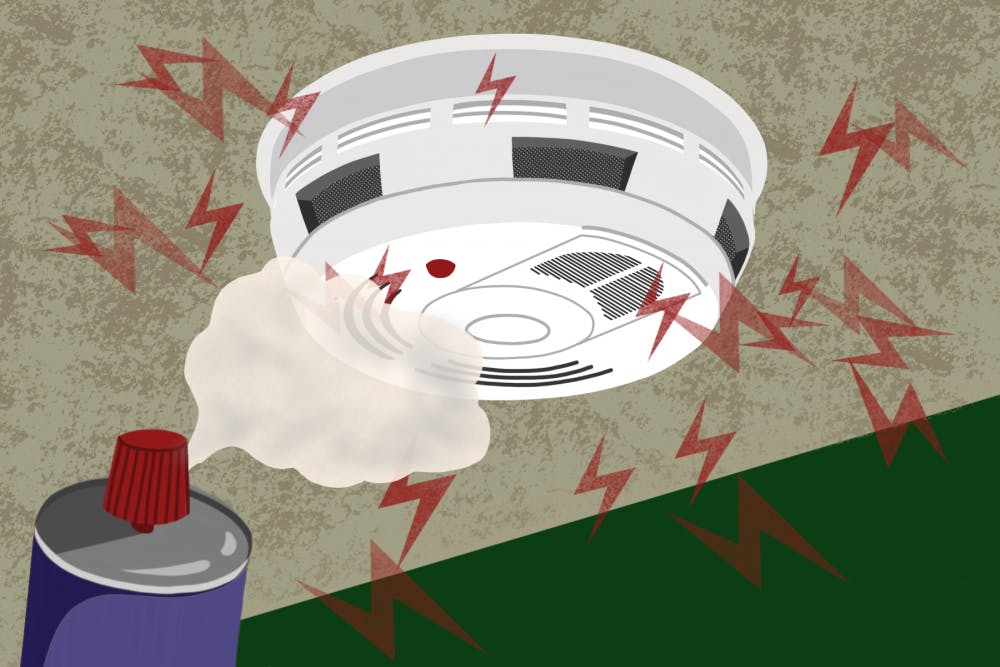Most of the smoke alarms in residence halls are not actually caused by fires, but benign items that cause nuisance alarms.
The nuisance alarms are a result of items such as air fresheners, hairspray, e-cigarettes or burning food in the microwave.
“It is equally important to note that we are continuously exploring new and innovative ways to reduce nuisance alarms in the residence halls through education and innovation,” Pete Trentacoste, the executive director of Housing and Residence life, said in an email.
On average, residence halls experience 321 fire alarms each year during the past two years, including summer months.
Jefferson Hall, Crawford Hall and Perkins Hall have all received new fire alarms or fire alarm upgrades with the building’s renovations.
One of these new innovative measures is the Safe-T-Sensor, a device that connects to Microfridges and interrupts power to a microwave when it begins to smoke, then later resets and restores power when the smoke clears.
The use of this new device has significantly reduced the number of alarms cause by burnt food, especially popcorn, Trentacoste said in an email.
Jefferson Hall is the only building that has seen an increase in nuisance fire alarms. There have been eight nuisance fire alarms since the start of the Fall Semester. However, the issue is reportedly due to one smoke detector with a failed mechanical part directly related to the regulation of steam.
Amelia Wenz, a freshman studying journalism, lives in Jefferson Hall and has been present for seven of the nuisance fire alarms since the beginning of the Fall Semester.
Wenz says most of the false alarms occur at night and are usually blamed on steam from the showers.
“They’re really loud,” Wenz said “Most of the time everyone moans and groans because they know what’s happening. One night it happened twice and the lights strobed until four in the morning.”
Due to the rise in nuisance alarms, Wenz says the residents of Jefferson Hall have taken precautions to avoid setting off the alarms. These precautions include leaving windows open when showering and being careful about habits, such as cooking and recreational activities.
Caylin Cole, a freshman studying psychology, lives in Ewing Hall and has not experienced a false fire alarm in her resident hall and does not believe her smoke detectors are as sensitive as other residence halls.
“I use my hair straightener and curler close to the fire alarm quite a bit and nothing happens,” Cole said.
Although the alarms may be seen as excessive, Trentacoste assures residents that Housing and Residence life take precautions to keep students safe.
“Fire alarms in the residence halls are tested annually by (OU’s) Life Safety Shop within Facilities Management and Safety,” Trentacoste said in an email. “Each device is tested to ensure proper operation. Any fire safety device that does not pass inspection during these tests is immediately repaired or replaced and re-tested until it passes with 100 percent accuracy.”






